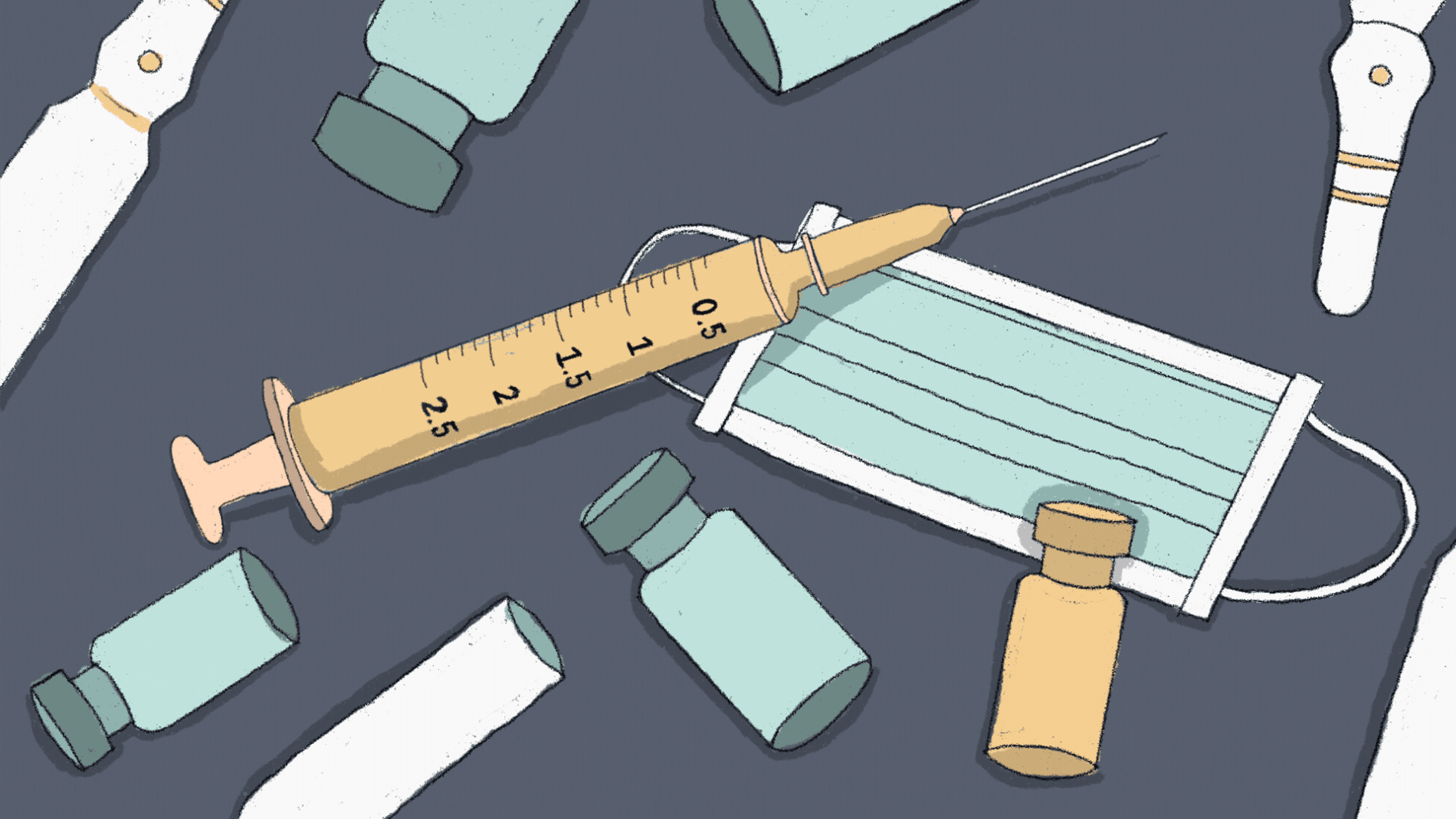
Read the Charter of Independence here.
BY HANNAH COHEN
Many Monash students are receiving their COVID-19 vaccines after being eligible in the 1A and 1B categories of the federal government’s national rollout scheme.
Quarantine and border workers are included in the 1A category, alongside health care workers who are frontline staff either in the emergency department, ICU, GP respiratory clinics, COVID testing or ambulance services.
Healthcare workers not listed in the 1A category are eligible in the 1B group.
Frontline healthcare worker and third year paramedicine student Brigitte Bertolus said, as a patient-facing staff member of Ambulance Victoria, she was eligible to receive her AstraZeneca vaccine as a part of the 1A category.
“It's a very easy process, you stay there for like 20 minutes afterwards to make sure you don't have any immediate adverse reactions,” Ms Bertolus said.
Ms Bertolus was relieved to have finally received the vaccine after working on the frontline during lockdown took a toll on her social life and mental health.
“I was so excited to be vaccinated, I shared the news with my whole family,” she said.
“It was pretty disheartening the whole way through the pandemic when people would tell me to my face that they admired my work so much and that I was really brave for going to work still, and then they would go out and break COVID restrictions.
“I cut people off because it was having such a negative effect on my mental health.”
Ms Bertolus experienced mild, flu-like symptoms as a side effect from the vaccine but said it was nothing out of the ordinary.
“It was all completely manageable with panadol. It's also the same reaction I've had with the flu vaccine every year. They didn’t last more than 24 hours,” she said.
However, for Monash University physiotherapy student Brianna Susan, the side-effects of her first round AstraZeneca jab were slightly more severe.
“For like two days after the vaccine I had chills and was a bit feverish and weak,” she said.
“It was really weird because I felt kind of sick but without any coughing or runny nose.
“It was like having a cold or a minor flu without the respiratory symptoms.”
Third year Monash nursing student Taiya Matheson was eligible for her Pfizer vaccine in the 1B category due to her student placement.
Ms Matheson said the process of receiving the vaccine at Monash Health was very quick, simple and similar to receiving her yearly flu vaccine.
“It literally takes two minutes,” Ms Matheson said.
“They had like 10 immunizers, it's like a revolving door, people are just going in and out.”
Ms Matheson said, although she works in a hospital among other healthcare workers, she has come across skepticism surrounding the vaccine.
“[Another nurse at the hospital] isn’t anti-vax but is unsure about getting the COVID vaccine,” Ms Matheson said.
“I asked her if she had gotten hers and she said ‘no, I'm a bit unsure about it’ and went on to tell me that one of the nurses had her second dose and had a code blue, which means she fainted and was shaking.
“She’s not sure about it so she’s not going to get [vaccinated].”
Ms Matheson believes skeptics should do more reading into the vaccine.
“I think you should do your research because I feel like everyone has this idea that it's this big bad thing that hasn’t been tested enough,” she said.
“They just don’t know that there has been a lot of testing and lots of people have already gotten it and most of these people are fine.”
Third year Monash medicine student Lucinda Pezzimenti was eligible in the 1A category and has since received both doses of the Pfizer vaccine.
She didn’t experience any adverse side effects and like Ms Matheson, said she has also interacted with people who are worried about the vaccines long-term effects.
“I think the rhetoric is less anti-vaxxer and more that people are a bit wary because the process has been quicker and people think it might have been rolled out a bit quickly. Even at the hospital that I work at,” Ms Pezzimenti said.
“It’s not uncommon for people to be wary.
“Some people are concerned about the long-term effects, but most people are pretty on board and know that we are getting it because it's safe and the benefits outweigh the risk.”
Phase 2a of the national rollout is scheduled to begin this month, which includes adults aged between 50 and 70, Aboriginal and Torres Strait Islander adults aged 18 to 54 and other critical and high risk workers.